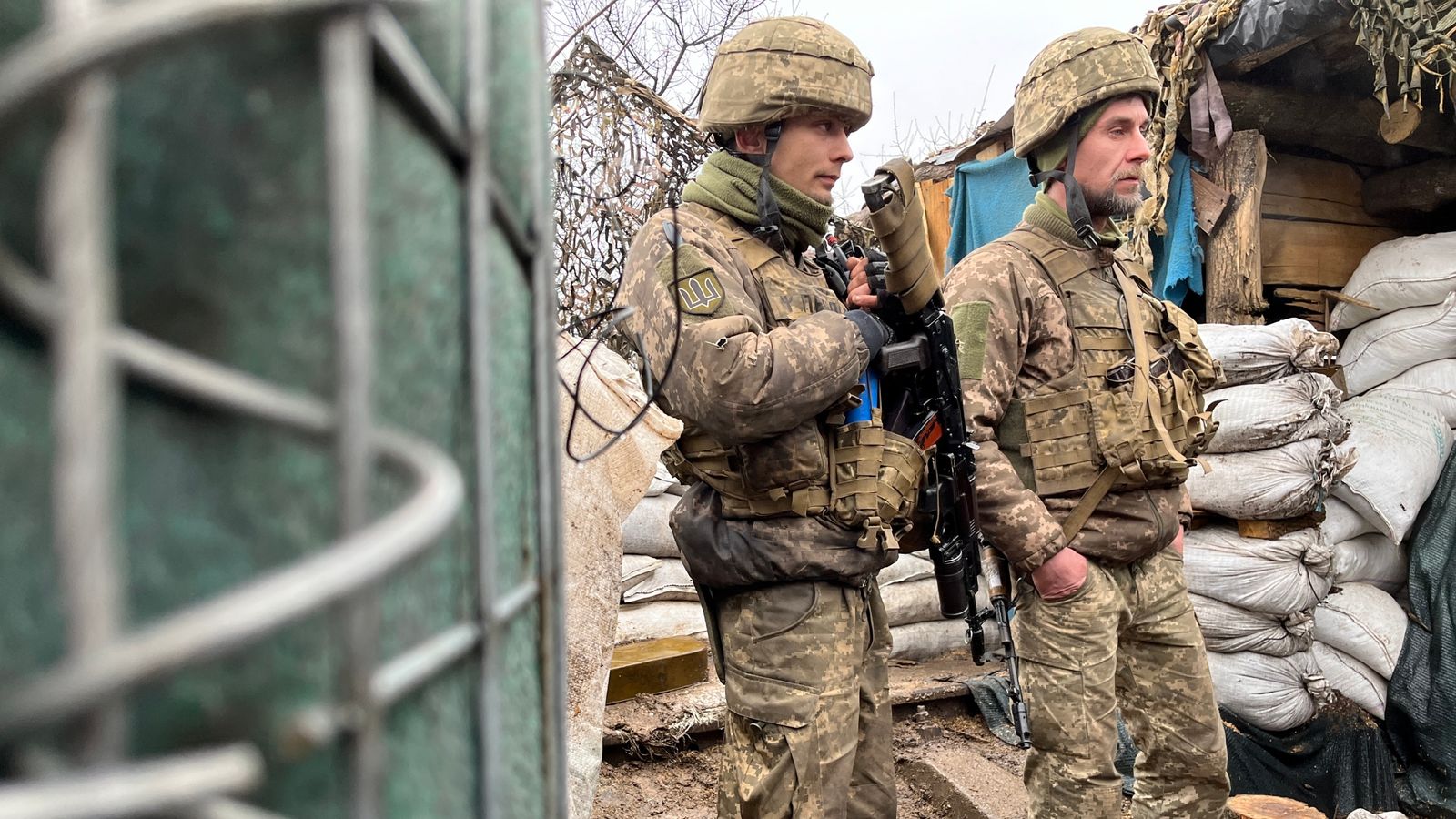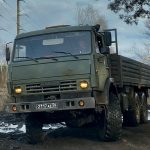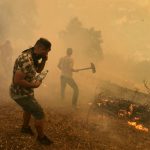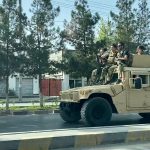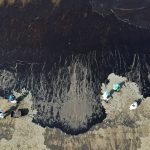Even as we arrived at the command headquarters about four kilometres from the frontline proper, we could hear the sounds of outgoing rockets from the Ukrainian military, which they maintain is a response to incoming fire from Russian-backed separatists.
The frontlines near Popasne have been kinetic for the past two days – an intensification in the fighting after months of mere exchanges of fire.
Now there are protracted volleys of rockets and mortars between the positions of both sides, along the 300-mile demarcation line.
We were told we couldn’t advance until the intensity of the fighting subsided. After a few hours we were taken to the frontline.
Through the mist we could see the first Ukrainian position appear, guarding the main road that leads to the separatist held part of Ukraine.
Fresh debris littered the road, soldiers milled around outside their protected bunker, never straying far away. They said that for two days they have faced a barrage of incoming fire.
The mist adds to the sense of foreboding. And this feels like a scary place – a 10ft wooden cross overlooks the Ukrainian position, surrounded by twisted metal and pot marked concrete signs welcoming visitors to the nearby town, damaged from years of fighting.
Ukraine crisis: Putin says military drills ‘purely defensive’ and ‘not a threat’ as Western leaders warn invasion imminent
Ukraine crisis: Putin to oversee massive nuclear drills tomorrow as Western leaders warn of ‘false flags’ to invade Ukraine
Ukraine crisis: Marinka hopes for peace but does not expect miracles
It’s eerily quiet and the soldiers don’t like it.
Please use Chrome browser for a more accessible video player
“It’s a little bit scary, because when it goes quiet it means they are getting ready for larger-scale fight,” 24-year-old Lyubomyr Chipko told me from his guarding position.
Bits of rocket lie next to holes in the punctured tarmac. He tells me the separatists targeted their road barriers for the first time.
The soldiers are worried that this tactic is a precursor to a ground invasion.
We moved forward through the mud and snow of the frontline trenches to the nearest points to the separatist positions.
Some of the trenches are lined with wooden planks to stop the trench walls collapsing.
Every visit, every day, feels more like World War One now.
At the front, duty soldiers keep a constant watch of their enemy’s lines.
At times they listen to the firing at other positions trying to identify the calibre of the incoming rounds.
Please use Chrome browser for a more accessible video player
Across this long battlefield, the soldiers all agree that things are ramping up, things are different now.
Everything is more intense.
“There is a lot more shelling than before. It has been calm for probably two months, but since yesterday fierce shelling has begun. They were using a large-calibre mortars yesterday,” Petro Savelyan, the soldier on duty here, told me.
Please use Chrome browser for a more accessible video player
A short distance away in their protected bunker, other soldiers wait for their turn to once again take up guard duty in the trenches.
But the bunkers are where they retreat when the rockets are falling, and in recent days they have spent a lot of time here.
